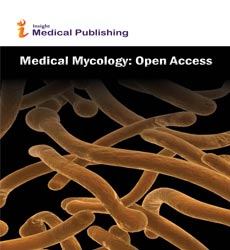Abstract
Future Microbiology 2020 Impact of Cancer-Causing Metabolites on Our Lives and Their Effects on Human Health
Did you know that you’re mostly a microbe? There are more microbial cells in your body than your own cells. Everywhere you look, even though you can’t see them, there is a hidden world of microorganisms. They had been on earth for some 4000 million years when Anthony van Leeuwenhock started his pioneering microscope work in 1673.
Microbiology is the scientific study of this hidden world of organisms that affect our health, help make our food, and influence our environment.
Over many decades, a plethora of bacteria, viruses and fungi were isolated and designated etiological agents of human infection disease. As with many instances at the interference between cause and effective therapy, the further characterization of these alleged pathogens remained in the hands of a few devoted investigators until drugs with therapeutic potential became available . This vague period before the advent of proper cures for infection explain the shadowy origin of clinical or diagnostic microbiology. As example, trying to clarify my idea, right now we are living with a large fear from a super tiny microorganism, sure I am talking about COVID-19 that we are currently suffering from. There is every day a large number of infected people, with a very high mortality rate due to this dangerous Virus, that’s why all of us are still waiting for the cure, crossing our fingers and hoping to find the magical vaccine after this very long time. This is what I called the ‘’shadowy and vague period’’.
Most of the microbes, or bacteria, in your body are meant to be there and are called “Resident bacteria”. These bacteria that are well-established residents of your body, especially the skin and gut. Despite all the good microbes do, when we hear news stories about microbes, it is usually about pathogens.
Pathogens are the invading microbes in our bodies that make us sick. It is usually our immune system’s reaction to foreign microbial invaders that give us the crummy symptoms, like a fever or stomachache.
Viruses are a different story. They can only reproduce by using a host cell. Sometimes this can be other bacteria, and sometimes this can be the cells in your body.
Fungi, have both positive and negative roles in our daily life, so they are our friends as well as enemy.
Author(s):
MAKHLOUF Joya, BAILLY Jean-Denis
Abstract | PDF
Share this

Google scholar citation report
Citations : 164
Medical Mycology: Open Access received 164 citations as per google scholar report
Abstracted/Indexed in
- Google Scholar
- China National Knowledge Infrastructure (CNKI)
- Directory of Research Journal Indexing (DRJI)
- WorldCat
- Publons
- Geneva Foundation for Medical Education and Research
- Secret Search Engine Labs
Open Access Journals
- Aquaculture & Veterinary Science
- Chemistry & Chemical Sciences
- Clinical Sciences
- Engineering
- General Science
- Genetics & Molecular Biology
- Health Care & Nursing
- Immunology & Microbiology
- Materials Science
- Mathematics & Physics
- Medical Sciences
- Neurology & Psychiatry
- Oncology & Cancer Science
- Pharmaceutical Sciences
